Where You Should Invest Now
Kiplinger.com senior investing editor Kyle Woodley joins our Your Money's Worth podcast to answer investor questions about tech stocks, the election and more. Plus, our hosts Sandy Block and Ryan Ermey chat about which documents you need to save in case of an emergency -- and share an important programming announcement.
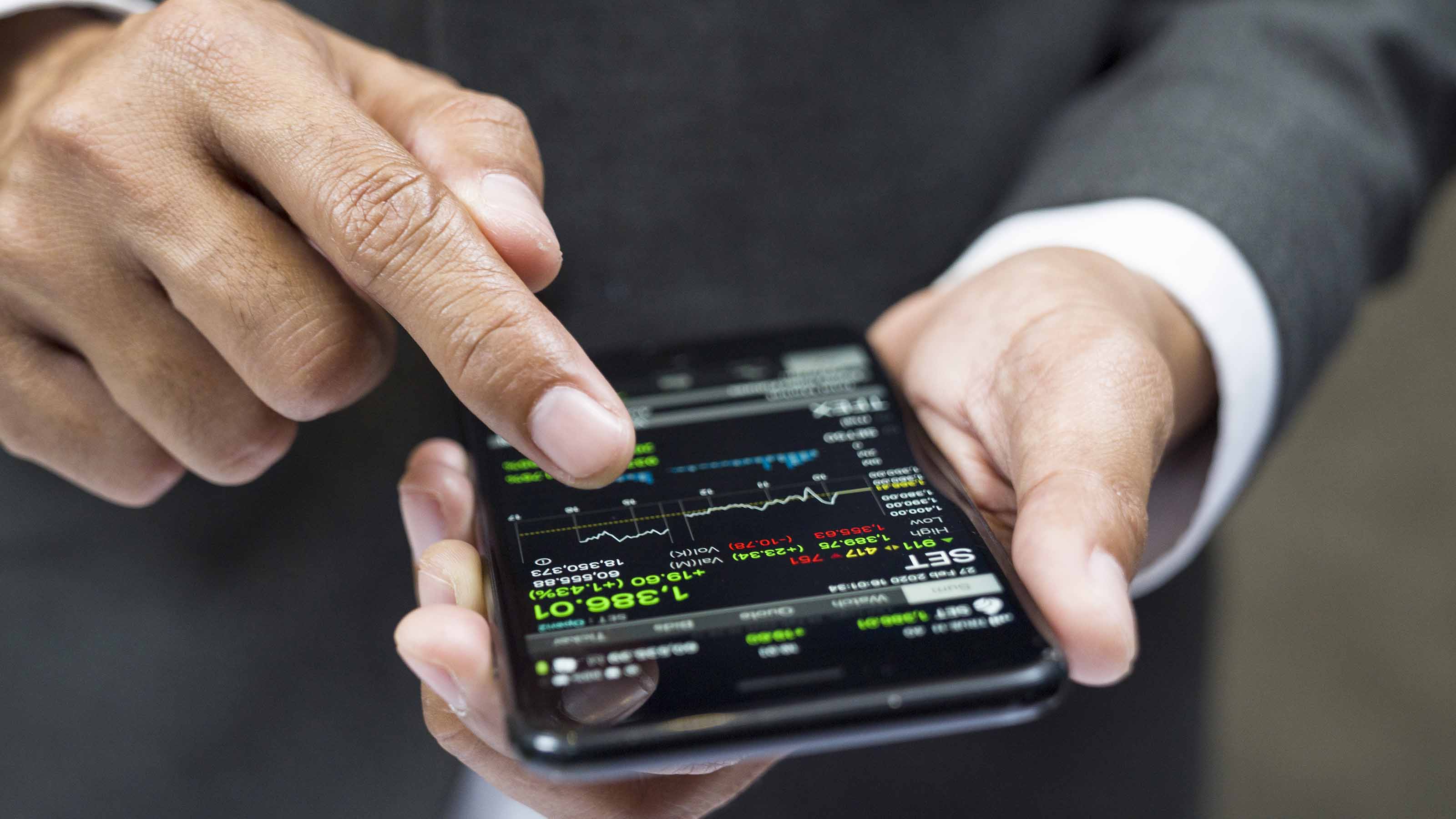
Profit and prosper with the best of Kiplinger's advice on investing, taxes, retirement, personal finance and much more. Delivered daily. Enter your email in the box and click Sign Me Up.
You are now subscribed
Your newsletter sign-up was successful
Want to add more newsletters?

Delivered daily
Kiplinger Today
Profit and prosper with the best of Kiplinger's advice on investing, taxes, retirement, personal finance and much more delivered daily. Smart money moves start here.

Sent five days a week
Kiplinger A Step Ahead
Get practical help to make better financial decisions in your everyday life, from spending to savings on top deals.

Delivered daily
Kiplinger Closing Bell
Get today's biggest financial and investing headlines delivered to your inbox every day the U.S. stock market is open.

Sent twice a week
Kiplinger Adviser Intel
Financial pros across the country share best practices and fresh tactics to preserve and grow your wealth.

Delivered weekly
Kiplinger Tax Tips
Trim your federal and state tax bills with practical tax-planning and tax-cutting strategies.

Sent twice a week
Kiplinger Retirement Tips
Your twice-a-week guide to planning and enjoying a financially secure and richly rewarding retirement

Sent bimonthly.
Kiplinger Adviser Angle
Insights for advisers, wealth managers and other financial professionals.

Sent twice a week
Kiplinger Investing Weekly
Your twice-a-week roundup of promising stocks, funds, companies and industries you should consider, ones you should avoid, and why.

Sent weekly for six weeks
Kiplinger Invest for Retirement
Your step-by-step six-part series on how to invest for retirement, from devising a successful strategy to exactly which investments to choose.
Ryan Ermey: Between the upcoming election and, oh yeah, the ongoing pandemic, uncertainty abounds in investing markets. Kiplinger.com investing guru Kyle Woodley joins the show to answer burning investor questions in our main segment. On today's show, Sandy and I discuss the documents you'll need to keep handy in case of a natural disaster and end the show with an important programming announcement. That's all ahead on this episode of Your Money's Worth. Stick around.
- Episode Length: 00:33:00
- Listen to previous Your Money's Worth episodes
- SUBSCRIBE: Apple Google Play Spotify Overcast RSS
Ryan Ermey: Welcome to Your Money's Worth. I'm Kiplinger's associate editor Ryan Ermey, joined as always by senior editor Sandy Block. Sandy, how are you?
Sandy Block: I'm good, Ryan. And I have a question for you. If you suddenly had to leave your house, because of a fire or a chemical spill or something like that, what would be the first things that you would grab on your way out?
From just $107.88 $24.99 for Kiplinger Personal Finance
Become a smarter, better informed investor. Subscribe from just $107.88 $24.99, plus get up to 4 Special Issues

Sign up for Kiplinger’s Free Newsletters
Profit and prosper with the best of expert advice on investing, taxes, retirement, personal finance and more - straight to your e-mail.
Profit and prosper with the best of expert advice - straight to your e-mail.
Ryan Ermey: Probably my two porcelain cheetahs and my framed poster of Allen Iverson.
Sandy Block: I think you were going to say -- too big, too big.
Ryan Ermey: No, I don't know . . . my passport and my underwear. I don't know. No. Anytime I'm going on a trip, if I'm about to walk out the door . . . I go -- all right -- passport, underwear. Okay, everything else, I can probably go without, but those two things I always have. But that is the topic of our show today. Not passports and underwear, but what you should take with you if you have to evacuate your home. And this is particularly timely given, I mean, our heart goes out to everyone on the West Coast who's threatened by wildfires. It's also hurricanes, there's tropical storms, just all kinds of perilous things going on . . . lions and tigers and bears. So, Sandy, what do we think that people should absolutely be taking from their home that will affect their finances in their life pretty materially?
Sandy Block: Well, the good thing is now a lot of the things that you need, you may have already stored it digitally. When I used to ask this question to people, I always think it's really interesting to ask them what they'll grab. And they would say, "Oh my pictures," and people don't say that so much anymore, because a lot of people have all their pictures backed up.
Ryan Ermey: It's in your phone.
Sandy Block: And I think that's true of a lot of financial documents, too. So you may not be as vulnerable as you used to be. I mean, obviously the first thing you want, you want your wallet, you want your phone. Your wallet is going to contain the identification that you're going to need. And obviously you want your phone. And it's a good idea to have some cash, because in a real disaster, you may not be able to get access to ATMs. So a lot of people keep a little cash around the house just for this reason. And it's not a bad idea to take some cash with you. So you want some identification records, that would be your driver's license, as you mentioned, your passport, your birth certificate, although you'd probably want to store that somewhere else. You'll need these if you have to establish your identity with financial institutions, because you need to apply for new credit cards, you need a temporary change of address. You need to be able to identify yourself.
Sandy Block: What you really want to think about is to have either a go-bag or a digital go-bag where you keep a lot of the other records you're going to need to reconstruct. Your go-bag or your digital go-bag would have recent financial statements from your credit card companies and banks, retirement accounts. You're going to need that information if you're evacuated for a while and have to contact these companies to have your bills sent to a new address or arrange for a new way to make payments or just to keep track of things.
Sandy Block: You're going to also want to have, if you own a home or even if you're a renter and you have renter's insurance, you're going to want to have an inventory of what you have. And the easiest way to do this and do this well before a natural disaster occurs is just a walk around your house with your phone and video everything. So you've got a video record and there's lots of apps out there that you can find that will help you do this. This is really important. A lot of these people out West, they lost everything. And when you file for an insurance claim, you need to be able to show what you had. And a video inventory will make it much easier, for particularly valuable things. You want to have a record somewhere maybe scanned into your computer, backed up or in a safe deposit box of receipts, proof of the value. If something's really valuable -- maybe those cheetahs -- you want to have appraisals. So you can . . .
Ryan Ermey: Worth untold fortunes this year.
Sandy Block: I'm telling you, you want to appraise those bad boys, because you want to be able to show how much they were worth when you file a claim. The other things that you're going to want to have somewhere outside your house or backed up or in a go-bag is your tax records. We recommend that people keep at least three years because that's how long the IRS has to audit you. Again, a lot of people have this online, that's fine. And legal documents, and this is particularly true if you have a car. I would take the car registration with you as you go out the door. Nobody wants to have to go get a new registration or go down to the DMV in a time of disaster. You should have your car title easily accessible, because your car may have been damaged. And if your insurer declares it a total loss, you're going to want to have that information.
Sandy Block: And finally, you're going to want to have somewhere accessible your property deeds -- again for homeowners -- property deed and mortgage papers. And for everyone, estate planning documents, will, healthcare proxy, power of attorney and other legal documents. Like I said, either have those in a bag that you can grab when you go or have them all backed up somewhere where you can get to them, because it's really hard to reconstruct this stuff, particularly if your home is destroyed.
Ryan Ermey: Right. So I'm wondering, are there certain things that are . . . something like tax documents or whatever, that seems to me to be something that's easily digitally stored . . . whereas some things, I would imagine you need the physical thing.
Sandy Block: Right. Birth certificate, your car title, maybe your mortgage documents. I would still scan them in, just to have.
Ryan Ermey: Right, it can't hurt.
Sandy Block: But I think you're right. In fact, I just been going through this with some cars in our family and I had to go find the titles and we actually keep them in a safe deposit box, but there are some things that you will need originals, but increasingly a lot of other things you can probably get away with having backup digital documents. But you're right. There are some things. Your driver's license, you're going to want to have that. You don't want a copy of your driver's license. You want your real driver's license. Same with your passport
Ryan Ermey: On your Social Security card, which still to this day, just a piece of paper, just a piece of cardboard, not laminated, not anything.
Sandy Block: Hanging around.
Ryan Ermey: I'm always terrified that I'm going to accidentally destroy it or leave it as a bookmark somewhere. I don't know. Anyway, even if you're not worried just give yourself some peace of mind. Start making digital copies of these documents so that when disaster strikes, and we hope that it doesn't. But if it does, it's just going to feel so much better that you're prepared with something like this so that you're not scrambling around the house while you're also trying to get your other stuff together. So, excellent advice. We certainly have a lot of this advice up on the website, so we will be putting it in the show notes. And Sandy, all fantastic stuff. And you know what, I guess I can leave the cheetahs behind.
Ryan Ermey: Are tech stocks in a bubble? The answer to this investor question and more with Kyle Woodley after the break.
Ryan Ermey: We are back and we are here with fan favorite, investing guru Kyle Woodley from Kiplinger.com. Kyle, thank you so much for coming on.
Kyle Woodley: Hey, pleasure to be here as always.
Ryan Ermey: So I figured today we could just talk about some burning investing questions that I have, especially given that we're looking at quite a lot of uncertainty in the markets coming up and that dovetails right into my first question. Wouldn't you believe it? Between the handling of the pandemic, the upcoming elections and everything else, we're expecting a lot of volatility. What are some ways that folks can hedge their portfolios if they're expecting volatility in the market?
Kyle Woodley: So this will sound obvious and over done, but the best way to hedge against volatility is to build a diversified portfolio. So across sectors, geographies, asset classes, across funds and stocks, then you sit on that portfolio and you only make changes when it's absolutely necessary. So dumping a stock whose story is clearly shifted for the worse, but some people do like to be a little bit more active with their portfolio, so I do have a couple of other thoughts here.
Kyle Woodley: My favorite hedge to this day remains the ProShares Short S&P 500 ETF (SH). In short, if the S&P 500 goes down 1% in a day, SH goes up 1%. small allocations to that are a great way to soften broad market declines in the short term without dumping your longterm holdings. I also like Reality Shares DIVCON Dividend Defender ETF (DFND).
Ryan Ermey: I love a clever symbol -- DFND.
Kyle Woodley: So this is based on, and actually all of them are actually like that if you go to their site, but this is based on the proprietary DIVCON dividend health rating system, which was wizarded up by Reality Shares' Eric Ervin. Effectively, this looks at various metrics like cashflow, earnings, growth, historical dividend growth and a few other metrics. It determines a stock's likelihood to grow, maintain or even cut their dividend. So what you'll find is this is a generally great system for identifying financially healthy companies. So what DFND does is it goes 75% long companies most likely to boost their dividends, then goes 25% short stocks most likely to cut their dividends -- way oversimplifying it. It bets on good stocks and it bets against bad stocks. From February's market highs to March's lows, the fund loss 15% compared to 34% for the S&P 500. And so far in 2020, the ETF has a total return of more than 13% versus about 5% for the S&P 500.
Sandy Block: So, Kyle, tech stocks have been really crazy this year, and some fund managers are starting to pare back their allocations, and we're starting to hear the "B" word. Are tech stocks in a bubble?
Kyle Woodley: Bubble might be a little bit harsh. Are there bubble-esque events going on right now? Yes. Yes, there are. So, yesterday we wrote about the cloud infrastructure firm Snowflake (SNOW). SNOW went public and it promptly doubled, which gave it about a $70 billion market value. That company generated $242 million in revenues during the first six months of 2020.
Ryan Ermey: With an "M."
Kyle Woodley: That's a million with an "M." With an average $70 billion market value, $242 million revenues. Now Bloomberg TV reporter Sonali Basak pointed out on Twitter that Snowflake was worth about as much as its lead banker Goldman Sachs. Now Goldman's net revenues for the first half of the year were $22 billion. So things like that make the environment feel bubble-icious. Being a little bit more serious here, the S&P 500 is actually nearing highs in its forward PE that it held right ahead of the dot com crash. And Schwab's Liz Ann Sonders pointed out this morning, the price earnings to growth or PEG, which actually factors in growth when considering earnings over time has gone parabolic. The tech sector of today is a lot different than the tech sector of yesteryear, though, if you're thinking about the 2000 dot com bubble. So Apple (AAPL), Microsoft (MSFT), Facebook (FB), they're reporting real significant earnings and generating gobs of cash.
Kyle Woodley: Look at the NASDAQ composite. It's not the tech sector, but it's the techiest of the major indices. In 2000, it peaked at a trailing price to earnings ratio of about 175. Now according to Wall Street Journal data, the NASDAQ is trading at closer to 25 times trailing 12 month earnings at the moment. That's still high, especially when you consider that factors in pretty depressed second quarter earnings for a lot of those companies. And you can see people take profits in tech to chase more economically sensitive stocks once a vaccine hits. So tech could still be in for a significant pullback. I just think bubble is too strong a word.
Ryan Ermey: Well, we were talking to the earlier tech bubble was price per eyeballs on the website. The evaluation's quite a bit more in line, but tech still certainly looks expensive. That doesn't mean that we all as investors don't have a pet tech stock or two. Something I've always wanted to ask you about here is, Kyle, I've made no secret that I love Amazon (AMZN). I've talked about that on the podcast before, and I love Twilio (TWLO) since I recommended it at $32 a share, for those of you listening. Go look up that ticker symbol and figure out what that would be worth now. I should have bought it when I recommended it. I always love stocks that shoot up after I recommend them and make me look smart. Are there's some tech stocks that you just believe in?
Kyle Woodley: . . . anything I say here, I've already admitted that I'm going to be, chasing overpriced stocks if I have any tech right now.
Ryan Ermey: So will the rest of us.
Kyle Woodley: All right, so this isn't going to be terribly scintillating. I've been in Amazon.com for a couple of years now. It's actually in a correction at the moment. So correction is 10% decline from a peak. It's off about 12% since early in the month. And I actually recently bought a few more shares. Short of some sort of exogenous shock, I just don't know what gets in Amazon's way. If we get a vaccine, sure, a few more people are going to head into stores, but Amazon has made so many inroads here over the past few months, not just in its retail arm, but also bringing people into the Amazon Prime fold, because they need to be more entertained at home, the use of its cloud technologies because everybody's working remotely, and so offices need to work digitally.
Kyle Woodley: And it was also forced to learn a lot more and improve upon its operations just by the trial by fire COVID situation. So Amazon still looks good to me. I'm buying on pullbacks. Chip stocks are overbought here, but it's hard not to like NVIDIA (NVDA), which just bought Arm Holdings, which is a chip designer from SoftBank. And Advanced Micro Devices (AMD). I like those for the long-term, too. I'm actually long AMD. NVIDIA's one of those where I keep kicking myself, because I keep saying maybe on a pullback and then I just haven't done it.
Ryan Ermey: And doesn't pullback.
Kyle Woodley: Given the world is evolving in how ubiquitous their products are becoming. I like them for the long term. I also like DocuSign (DOCU). That's the marquee name in digital signature technology. I actually cashed out of my position during the September spike because we are reaching irrational exuberance levels. And it has dropped a quarter of its value since then. So yeah, me. It's still pricey, but we're getting near more justifiable evaluations for the money, so I'm going to be looking at it again. But to be honest, most of my tech exposure is actually through exchange traded funds.
Sandy Block: So, guys, the last time I bought a tech stock was AOL. It actually did really well, because we bought it when it was crashing and was trading for less than book and since then it's gone through many iterations since then. But I'm like, Kyle, I prefer buying a basket. So how about those ETFs? We love the Kiplinger ETF 20, but are there any ETFs, maybe some obscure ones that you're particularly excited about?
Kyle Woodley: Sure. So I'll start with a not at all obscure one, one that everybody should have heard of by now. And if not, take a look. I get a lot of my tech exposure through the Invesco QQQ Trust (QQQ).
Ryan Ermey: With the Qs.
Kyle Woodley: That invests in the NASDAQ 100, which has Apple, Amazon, Facebook, all of those. So essentially if you want to get "broad market exposure," but with a really heavy technology tilt, the Qs are a way to go. I also have smaller positions, however, in a couple of more of obscure ETFs. One of them is the Direxion Work From Home ETF (WFH), which we've talked about the podcast before. And the ARK Innovation ETF (ARKK). Now that latter fund is an actively managed ETF, which there's not a lot of those right now, but that's growing. And it looks to invest in disruptive technologies across four areas. So genomic, industrial, next generation internet and FinTech or financial technology. The fund is run by Katherine Wood, who's thrashing everyone this year. ARKK is the third best performing, non-leveraged equity ETF. So in other words three X biotech or whatever, none of those, just plain old stocks. It's the third best performing one of those in 2020, 83.5% returns as of yesterday.
Ryan Ermey: My God.
Kyle Woodley: So out of curiosity, you want to take a shot at what numbers one and two are?
Ryan Ermey: Something that holds Tesla and little else?
Kyle Woodley: So you would actually be right on that for one of them. So the number one and number two ETFs so far in 2020 are the ARK Next Generation Internet ETF (ARKW) at 83.7% returns year to date, and the ARK Genomic Revolution ETF (ARKG) at just a hair over mine, that ARK, eight 83.5%, just a hair over 83.5%. So I guess I'm really not all that smart after all. I'm in Katherine Woods third best . . . right?
Sandy Block: Not doing too bad.
Kyle Woodley: The thing about ARK is this. It's actually a mashup of themes in ARKW, ARKG and two other ARK funds. So hey, I'm underperforming for the sake of diversification, huh?
Ryan Ermey: That's certainly the way to go. So we'd be remiss if we let you go before bringing up the election. For people keeping eyes on polls and markets at the same time, what are some investments that you expect to do well if the Democrats take office and some that should benefit from continued Republican leadership.
Kyle Woodley: Yeah, sure. So everyone at home, go ahead and relax. Calm down. Everything's going to be just fine. We're not going to talk politics. We're just going to talk policy. Analysts have been at this for a while by the way. I remember reports starting to stream in even in late 2019 horse racing, which sectors industry stocks would do what based on which primary candidate, but naturally that analysis is really starting to tighten up now that we have an official Democratic candidate and his various policy proposals are coming to light.
Kyle Woodley: And one of my long time contributors, Charles Sizemore, has recently looked at potential winners under both a Biden presidency scenario and Trump's reelection. So I'm going to talk a little bit about those right now.
Ryan Ermey: Excellent. Yeah, I think we can eliminate the Beto O'Rourke stocks these days. I don't think he's going to win.
Sandy Block: But the Kanye . . .
Kyle Woodley: We didn't cover Green Party stocks there, so bad on us.
Sandy Block: Kanye stocks. I'm just saying.
Kyle Woodley: Oh, Kanye stocks.
Ryan Ermey: Well, that's Tesla. That's still Tesla.
Kyle Woodley: So we'll go ahead and start with the quote unquote, Trump stocks. Financial stocks as a whole are going to stand to benefit from four more years of Trump. Republican administrations are simply bank friendlier than Democratic ones on the whole, but perhaps more importantly, a second Trump term would prevent a reversal to the corporate tax cuts from the tax cuts and jobs act. So Biden is proposing raising corporate taxes to 28% . . . and Woods analysts say that would eat about 9% in profits from Bank of America (BAC), and about 4.1% from JP Morgan's (JPM) earnings. So you might expect something of a relief rally if Trump is reelected.
Kyle Woodley: Lockheed Martin (LMT) is another that feels right Trump play. Republican administrations tend to be more apt to spend on defense. So locking in another four years of that should go over pretty well for LMT. But let's be clear. Lockheed is reasonably priced. It offers a decent yield. It's a long-term survivor. So if Trump is voted out, you don't necessarily have to jump ship if you already own this stock. So even in a best case scenario for Democrats, which is winning the Presidency, the House, the Senate, Biden is still probably going to face enough moderate resistance that he's not going to be able to go say full Green New Deal, but make no mistake. A Biden Presidency is still probably going to be able to push through some green energy and other environmentally-focused initiatives. So that should be a boon for Brookfield Renewable Partners LP (BEP). And that just owns a portfolio of various green energy assets. So that's wind, solar, hydro electric plants and a few other things.
Kyle Woodley: Biden also wants to make the U.S. a world leader in electric vehicle production. So, boom, now we can talk about Tesla (TSLA) for a second. It seems like a natural beneficiary. Tesla obviously is not the only EV player anymore. Not by a long shot. Most of the majors have hybrids and even full electric vehicle lineups. And those that don't are adding them, but Tesla is the most established, pure play EV company by a mile. So a Biden administration is likely going to provide some more fuel to that growth story.
Ryan Ermey: . . . a Biden or a Kanye Administration. Well, listen, thank you very much for coming on, Kyle. We always love having you on. Hopefully everyone had their pens and papers out to get those symbols down. If not, go ahead and rewind and listen to that again. I guess you don't have to rewind.
Kyle Woodley: Move the stem back.
Sandy Block: How old are you? Put your pencil in the cassette.
Ryan Ermey: Rewind it. Throw the cassette into the VCR and push down the . . . drag your thumb back, listen to the thing again. Download the episode. Rate, review and subscribe the whole thing. Kyle, thank you so much for coming on. Always a pleasure.
Kyle Woodley: Thank you very much for having me. Have a good one.
Ryan Ermey: After the break, stick around for an announcement of a major change to the podcast.
Ryan Ermey: We are back and before we go, we had said that there was going to be a programming announcement at the end of the episode. And it is a rather major one and a sad one for me, which is that I'm leaving.
Sandy Block: I know, I know. And I don't know how I got through the first part of this podcast. Sad.
Ryan Ermey: So I've accepted a position elsewhere. To find the other stuff that I'm working on, you can of course follow me on Twitter @RyanErmey. But it's a really bittersweet moment for me leaving, not only the podcast, but Kiplinger's, which has been my professional family for a long time. I started right out of college. Not right out of college. I waited tables and was a caterer and all this kind of stuff. But my first real gig out of college was at a Kiplinger's and I was 22 or 23 years old and I'm leaving just shy of my 30th birthday. When I started out, I didn't know anything about personal finance when I started. I obviously had some experience writing and some experience in journalism, but I remember distinctly researching about what quantitative easing was so that I could mention it in the interview, so that I could slyly drop it in there, "Oh, yeah, I want to explain complex concepts, for instance, quantitative easing." There's something I just think about naturally.
Sandy Block: And what I remember Ryan is that it was such so refreshing because A, you were young, and we weren't. And B, you were a guy, and . . . I remember one feature we were working on where we had a bunch of pictures and we dragged you into it, because we're like "we need a guy in here."
Ryan Ermey: Right. It was money lessons for millennials. I remember this. And I was the only millennial man on staff.
Sandy Block: You brought such a sensibility in terms of waiter intel and restaurant intel -- and just young, hip intel. It was really refreshing having you around.
Ryan Ermey: It was a perspective that I was really happy to bring to Kiplinger, which was hoping to make the message, the time-tested advice that Kiplinger has, accessible to people my age and nowadays to people who are younger than me. And that's really been a part of the aim behind this podcast, which has been such a privilege for me to work on, not only for the opportunity to convey that kind of message and a voice and point of view that felt like my own, but because I've had the opportunity to do it with you, Sandy, who, we've been buddies since I started. I sat at a cubicle right outside. First right around the corner from yours and then when you moved right outside of your always open office door.
Sandy Block: Back when we had offices. We have to give a hat tip here to Mark Solheim who today pointed out that he decided that you and I would do this. And my recollection is when he pulled me into his office to say, "We're going to do this podcast," he thought you and I had the most attitude of anybody in the office.
Ryan Ermey: Attitude.
Sandy Block: Attitude.
Ryan Ermey: Yeah. I'd like to thank Mark and Sarah Stevens and all the higher ups who took a chance on letting me do this. You're going to continue to do this. We'll get to that in a second. I'd like to thank Phil Wall who has worked tirelessly behind the scenes to make the show sound polished and professional from day one, when I think it's fair to say you and I, Sandy, we're far from polished and professional. Andrea Browne Taylor and the web team for putting it up on the site every week and making sure my headlines were SEO friendly. And most importantly, I'd like to thank all of our listeners. It's been really amazing to see how many of you tune in every week, how many of you take our advice seriously and ask us questions that we were always really happy to answer. And I really hope that we in some way made your lives better and easier and gave you news and information that you could use, and that we were doing it in a way that we were never telling you to eat your peas.
Ryan Ermey: So, what next? Well, the show must go on, Sandy.
Sandy Block: I'm still here.
Ryan Ermey: Sandy is still here and I'm being replaced by David Muhlbaum, who you may remember as the guest host episode before last. He's also appeared several times on the show talking about cars usually, but he is a Kiplinger veteran with a broad range of personal finance knowledge, and also a really funny, fantastic guy. He and Sandy will be coming to you with new episodes starting October 5th, which is nice, Sandy, you get a little break. And during the week off, we'll be running a favorite episode of mine with Dave. He talks about weatherproofing your car.
Sandy Block: Timely.
Ryan Ermey: Exactly. It's really kind of perfect. Rocky Mengle talks about moves to make before the October tax deadline extension.
Sandy Block: Coming up.
Ryan Ermey: Advice that still holds. And the two of them play around a financial Jeopardy, which I wish we could have done more jeopardy categories, but personal finance doesn't come up quite as much as you'd think. So anyway, a huge thank you to all the listeners. Keep up with me. I'm still going to be writing about personal finance and I'm still going to be focusing on the people who I was passionate about focusing on in the first place of Kiplinger's and that's young, regular folks who are working hard to preserve the money that they have and to earn more.
Ryan Ermey: So it's been an absolute privilege and a pleasure to be on with you guys for 96 episodes.
Sandy Block: . . . and counting.
Ryan Ermey: And I can't wait to listen to what you and Dave do with this. I'm really excited about it. That'll do it for this episode of Your Money's Worth. For show notes and more great Kiplinger content on the topics we discussed on today's show, visit Kiplinger.com/podcast. You can stay connected with us on Twitter, Facebook or by e-mailing us podcast@kiplinger.com. And if you like the show, please remember to rate, review and subscribe to Your Money's Worth wherever you get your podcasts. And for 96 episodes, thanks for listening.
Links and resources mentioned in this episode:
- Key Documents to Take With You in an Emergency
- Your Essential Financial Document Emergency Kit
- 3 Simple Steps to Create a Home Inventory
- 10 Low-Volatility ETFs for This Roller Coaster Market
- Buffett Makes Rare Bet on Blockbuster Snowflake IPO
- 10 Best Stocks to Buy If President Donald Trump Wins Re-Election
- 10 Best Stocks to Buy If Joe Biden Wins the Presidency
Profit and prosper with the best of Kiplinger's advice on investing, taxes, retirement, personal finance and much more. Delivered daily. Enter your email in the box and click Sign Me Up.

Block joined Kiplinger in June 2012 from USA Today, where she was a reporter and personal finance columnist for more than 15 years. Prior to that, she worked for the Akron Beacon-Journal and Dow Jones Newswires. In 1993, she was a Knight-Bagehot fellow in economics and business journalism at the Columbia University Graduate School of Journalism. She has a BA in communications from Bethany College in Bethany, W.Va.
-
 Where Olympians Store Their Medals is a Great Lesson For Your Valuables and Cash
Where Olympians Store Their Medals is a Great Lesson For Your Valuables and CashWhat you can learn about protecting your cash and values from where Olympians store their medals.
-
 Private Capital Wants In on Your Retirement Account
Private Capital Wants In on Your Retirement AccountDoes offering private capital in 401(k)s represent an exciting new investment opportunity for "the little guy," or an opaque and expensive Wall Street product?
-
 Paying for Long-Term Care: Myths vs Uncomfortable Truths
Paying for Long-Term Care: Myths vs Uncomfortable TruthsNone of us wants to think we'll need long-term care when we get older, but the odds are roughly even that we will. Which is all the more reason to understand the realities of LTC and how to pay for it.
-
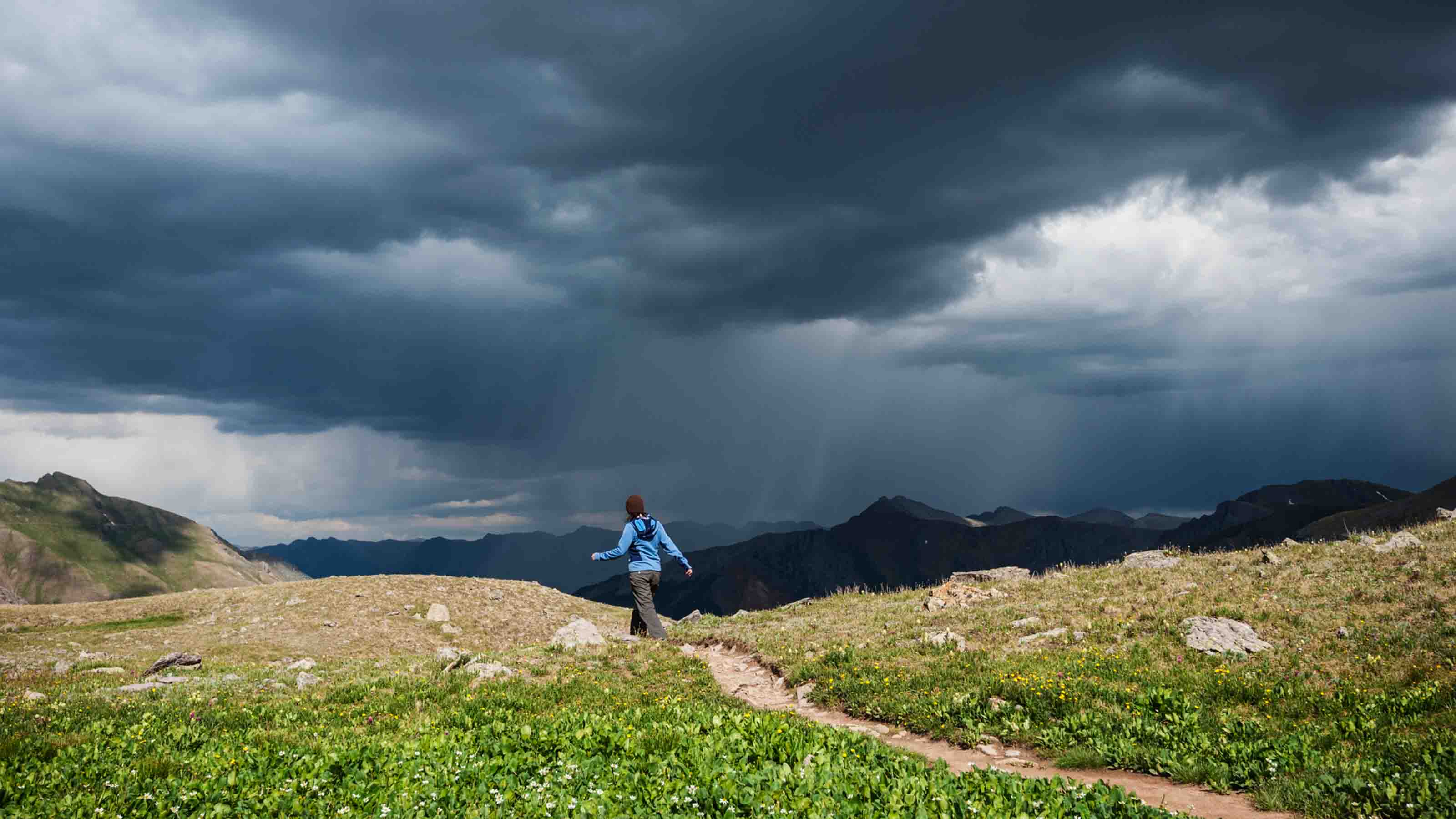 PODCAST: Is a Recession Coming?
PODCAST: Is a Recession Coming?Smart Buying With a lot of recession talk out there, we might just talk ourselves into one. We take that risk with Jim Patterson of The Kiplinger Letter. Also, dollar stores: deal or no deal?
-
 PODCAST: This Couple Tackles Love and Money as a Team
PODCAST: This Couple Tackles Love and Money as a TeamGetting Married Fyooz Financial, the husband and wife team of Dan and Natalie Slagle, have carved out a niche advising other couples with the money questions that come with pairing up. Also, where is this troubled stock market headed?
-
 PODCAST: Decoding ESG Investing with Ellen Kennedy
PODCAST: Decoding ESG Investing with Ellen KennedyBecoming an Investor Environmental, social and governance investing is simpler than it sounds, and has a profitable track record to boot.
-
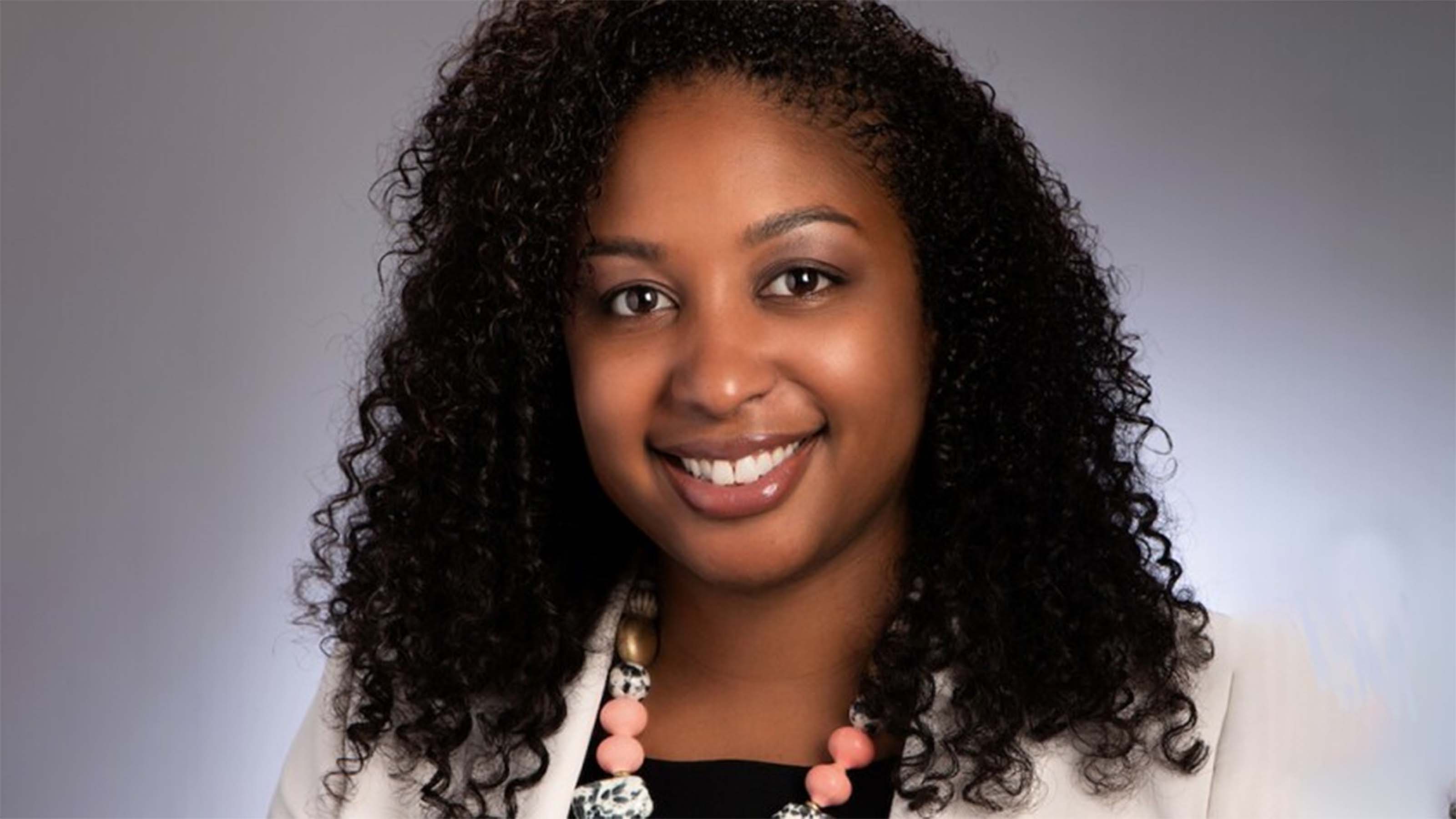 PODCAST: The Future of Certified Financial Planners with Kamila Elliott
PODCAST: The Future of Certified Financial Planners with Kamila ElliottBecoming an Investor CFPs will tell you (and we’d agree) that not all financial advice is the same. We talk with the chair of the CFP Board about what she’s doing to preserve her organization’s brand and extend its reach. Also, the right way to file your tax returns for free.
-
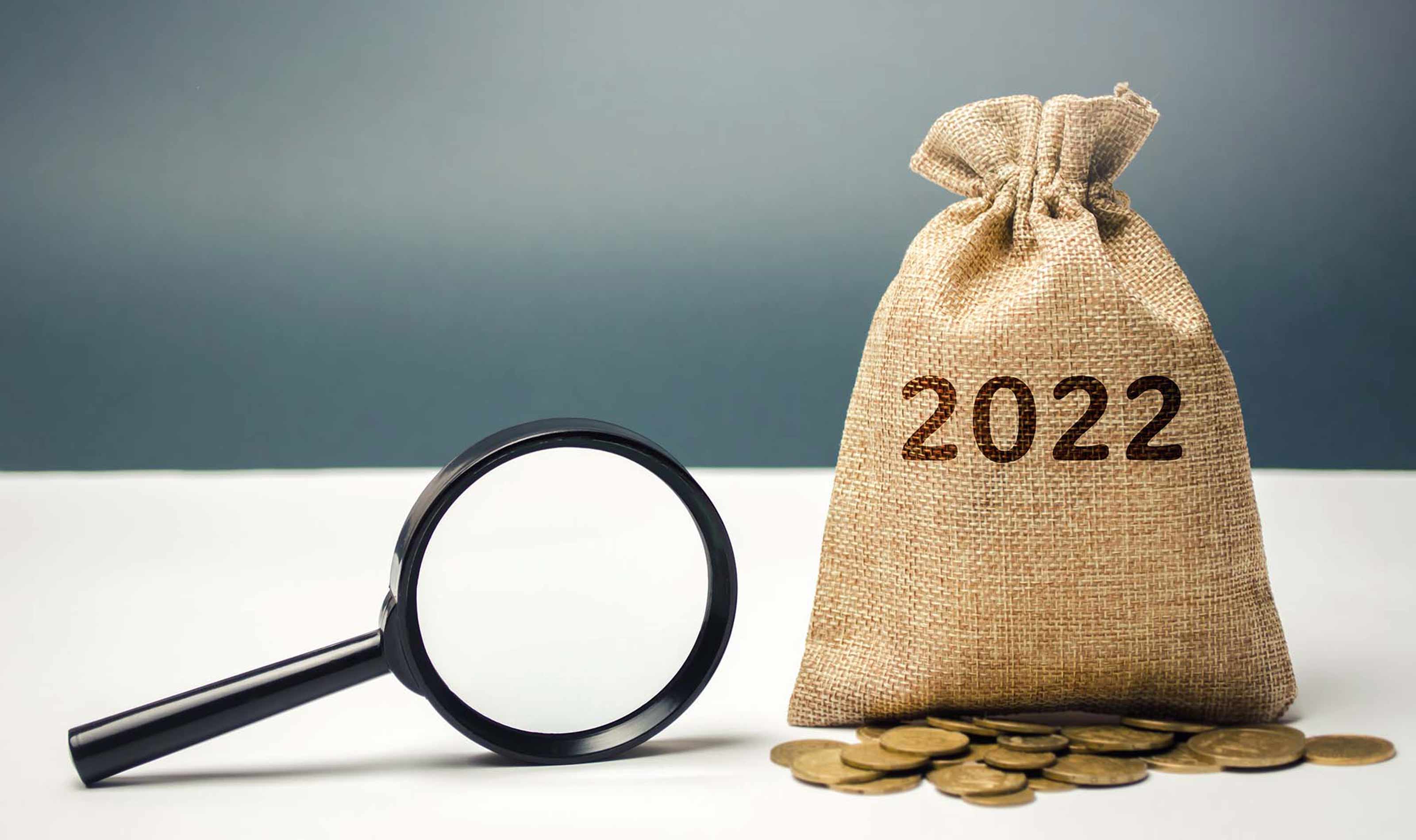 PODCAST: The Kiplinger Letter’s 2022 Forecasts
PODCAST: The Kiplinger Letter’s 2022 ForecastsEconomic Forecasts What to expect from the U.S. economy and an election-year Congress, as well as the outlook for cryptocurrency regulations, TikTok and more. Plus, we give the Elizabeth Holmes verdict a think.
-
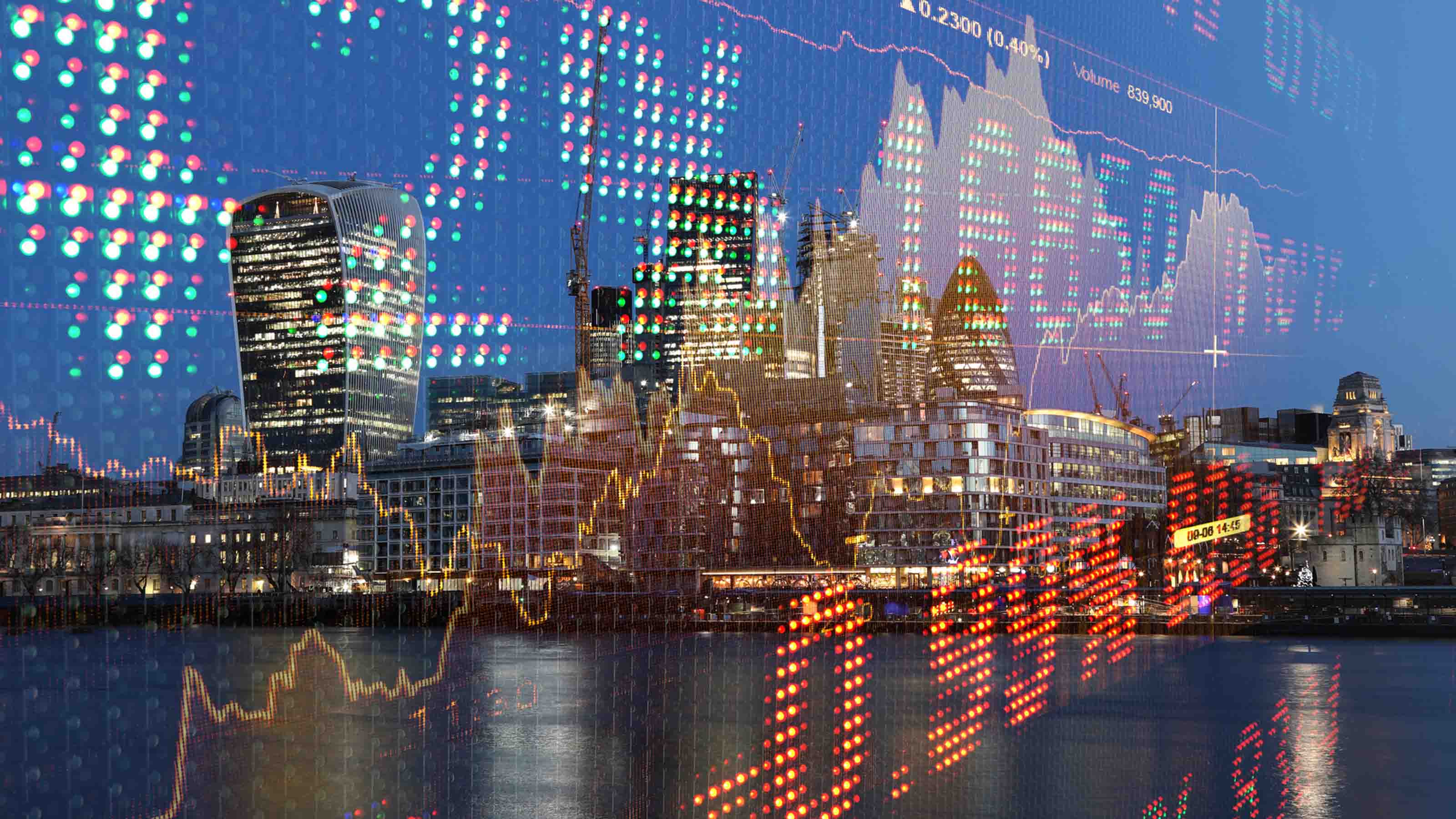 PODCAST: The 2022 Stock-Market Outlook with Anne Smith and James K. Glassman
PODCAST: The 2022 Stock-Market Outlook with Anne Smith and James K. GlassmanMarkets Sure, measuring stock markets by calendar years is a bit artificial, but it’s still a good way to give your portfolio a checkup. We forecast what stocks and sectors will fare well in 2022. Also, how the 401(k) got its start.
-
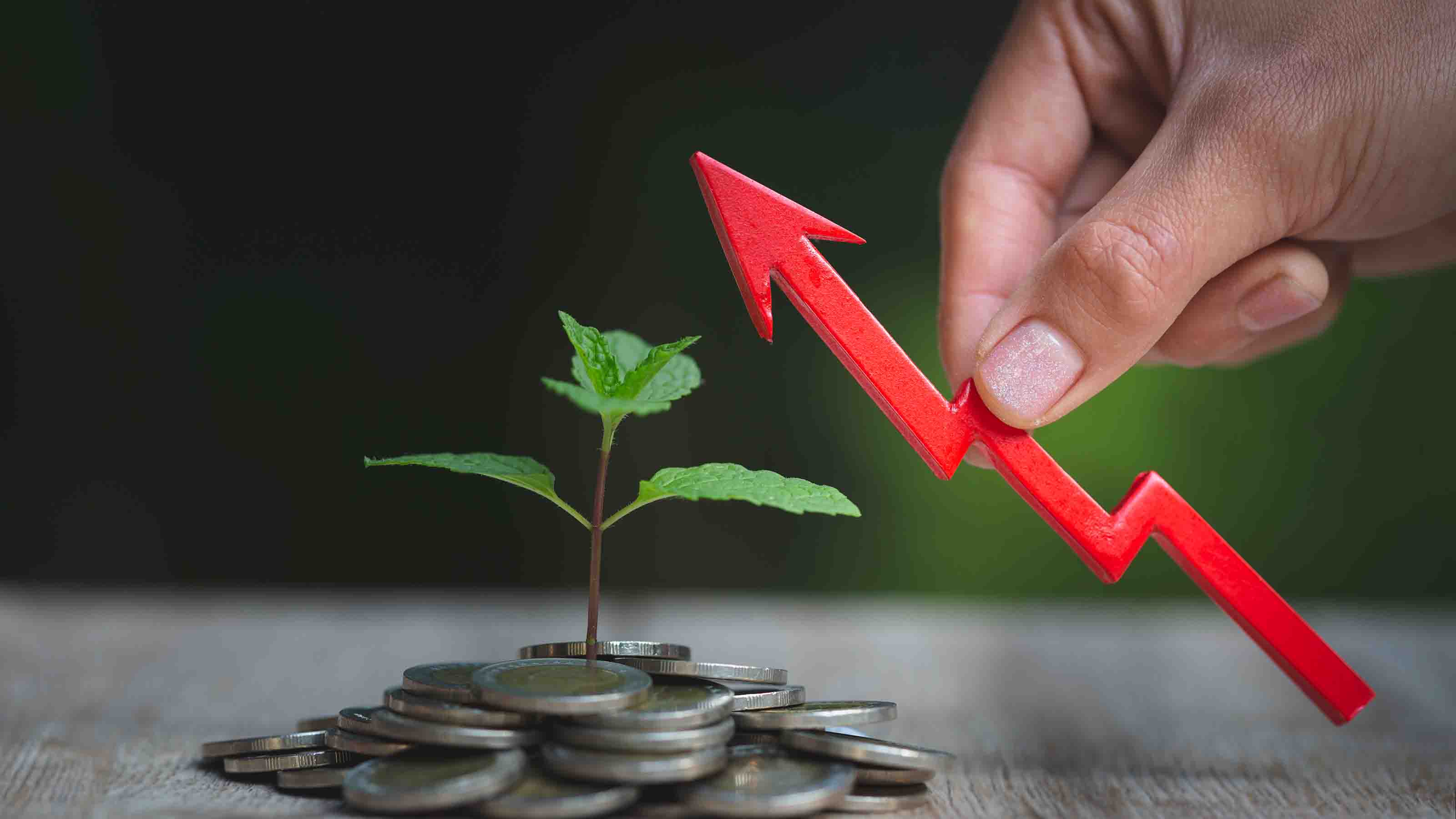 PODCAST: Investing for Income with Jeffrey Kosnett
PODCAST: Investing for Income with Jeffrey Kosnettinvesting Cold, hard cash working from home! No, this isn’t a scam — it’s an investing strategy built on bonds, REITs, preferred stocks and more.
-
 PODCAST: Brandon Copeland on Reaching Financial Freedom
PODCAST: Brandon Copeland on Reaching Financial FreedomFinancial Planning This NFL player’s path to a future of financial independence after his pro career is over can help the rest of us plan.

